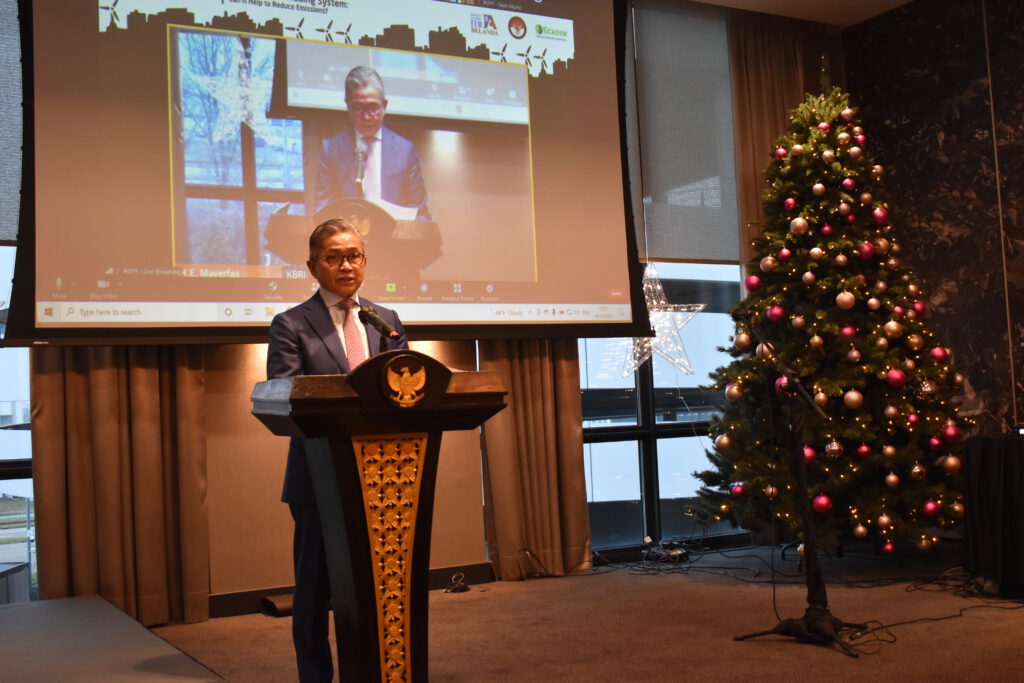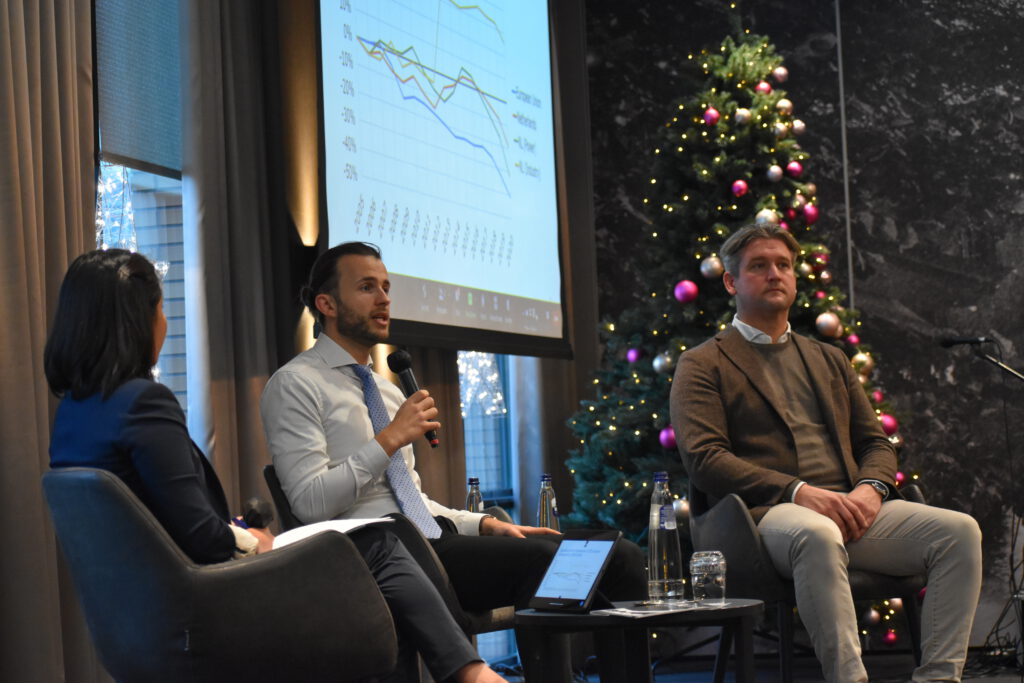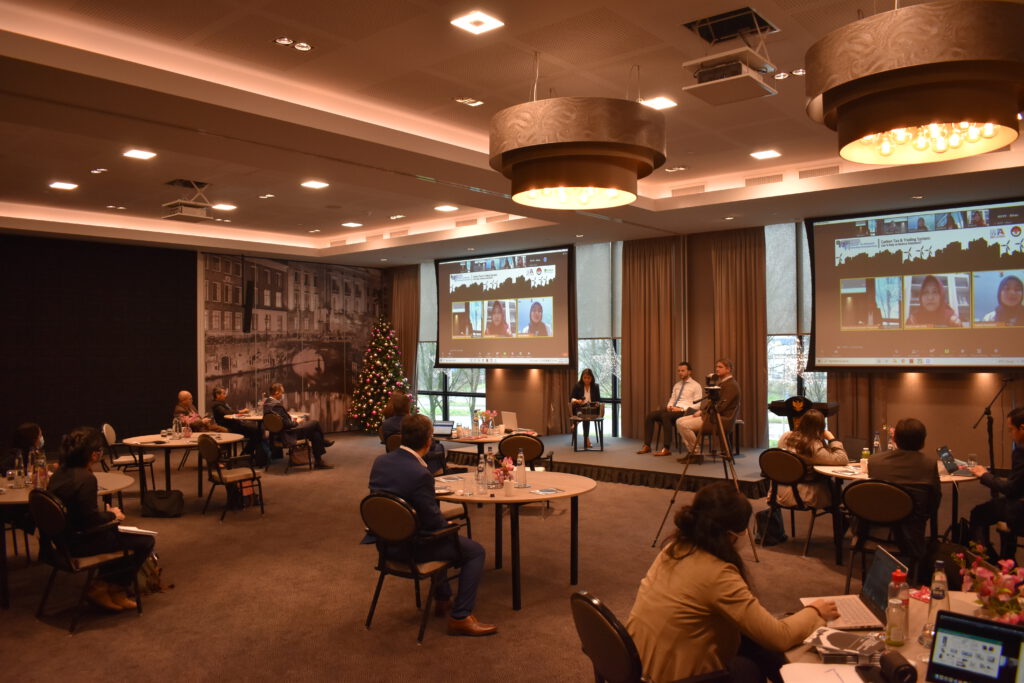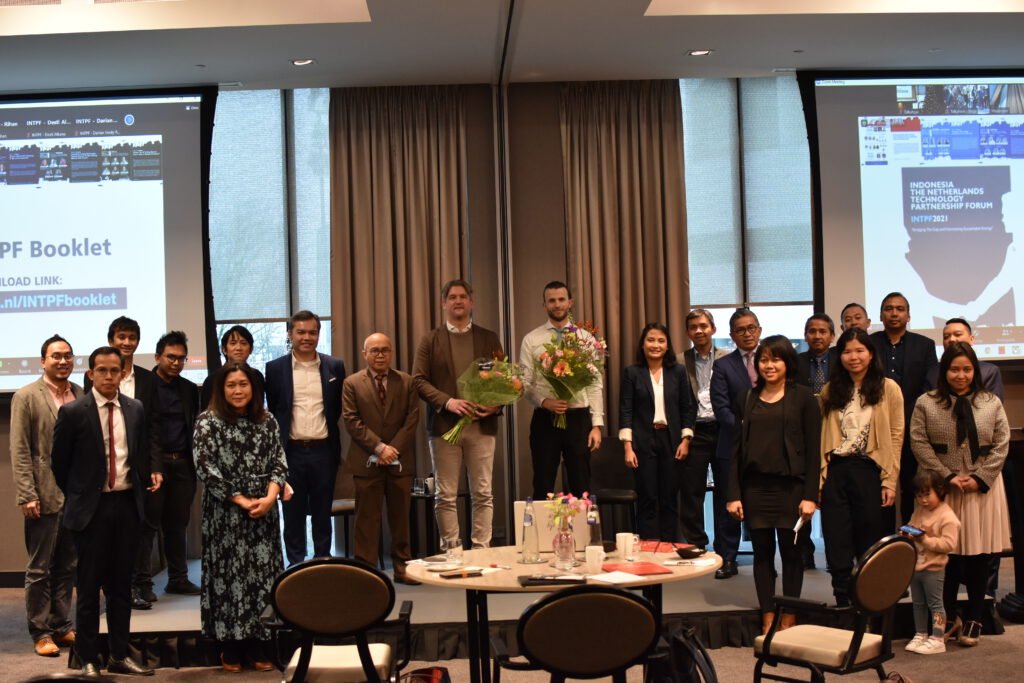The Bandung Institute of Technology Alumni Association (IA-ITB) Netherlands in collaboration with the Indonesian Embassy in The Hague and Energy Academy Indonesia (ECADIN) held a Webinar entitled “Carbon Tax: Can It Help to Reduce emissions ?” on Tuesday, December 14, 2021. This webinar is the 5th series of events in the Indonesia-the Netherlands Technology Partnership Forum (INTPF).
INTPF itself is a platform that aims to facilitate collaboration between stakeholders in the field of technology between the two countries. This year, INTPF focuses on the topic of renewable and sustainable energy. The context and urgency of this topic is the follow-up to the recent high-level COP26 meeting in Glasgow which pushed for more aggressive carbon emission reductions to address the issue of climate change. Among the initiatives taken by Indonesia is the implementation of Presidential Regulation No. 98/2021 on Carbon Tariffs and Carbon Taxes which will be effective next year.
This webinar intends to learn more about the planned implementation of the Presidential Regulation by taking lessons from the experience of the European Union which has implemented the Emission Trading System (EU ETS) since 2005 and the Dutch government which has also recently implemented a Carbon Tax in 2021.
Opened by the Indonesian Ambassador to the Kingdom of the Netherlands, Mr. Mayerfas, this webinar featured speakers from the Netherlands and Indonesia, namely Paul van Baal from the Dutch Ministry of Economy and Richard Middel, the manager of the Groningen Seaports Industrial Estate representing the perspective of industries experiencing the impact of carbon emission reduction policies. Meanwhile, from Indonesia, Mrs. Ferike Indah Arika from the Ministry of Finance and Mrs. Kamia Handayani, Manager of Climate Change at PLN.
The speaker from the Ministry of Finance stated that Indonesia will impose a carbon tax in 2022 at a price of IDR 30,000/ton for the power generation sector and 2025 for the comprehensive implementation of tariffs and carbon trading mechanisms.
Responding to the government’s plan, PLN, represented by Kamia Handayani (Manager Climate Change) revealed PLN’s plan to achieve the net zero emission target by 2060. This target will be divided into two stages, namely short term (2021-2030) and long term (2030-2060). ). In the initial phase, PLN will reduce diesel generators first and encourage more alternatives such as biomass and gas. Meanwhile, in the next phase, PLN will start to stop the use of coal-fired power plants.
Meanwhile, Paul van Baal from the Dutch Ministry of Economy revealed that the European Union itself has implemented this policy more thoroughly in all sectors, not just power generation, including down to the consumer level. So that the reduction of carbon emissions has been realized quite significantly. In the near future, the target for this reduction is up to 60%. Paul added that the key to successful implementation of the overall emission reduction policy is the stick and carrot mechanism, not only an added burden for industry players, but incentives for those who are willing to participate in the form of subsidies from the government.
Meanwhile, Dutch Industry players stated that innovation was the key for the industry to adapt to this policy, considering the demands for change not only from the government but also consumers. So the industry is required to innovate so that this transition can be in line with the company’s financial goals as well. One example is the implementation of hydrogen technology which is mostly carried out by companies operating in the Groningen Seaports industrial area.
Homework for Indonesia going forward with this policy is how this policy can be implemented in more detail at a more technical level so as to encourage all stakeholders to be synergistic towards emission reduction targets. In particular, how the tax value applied and the price and carbon trading mechanism applied can encourage the implementation of more environmentally friendly technologies without significantly sacrificing economic growth.
Closing the series of INTPF events in 2021, the committee launched a booklet which can be downloaded at http://iaitb.nl/INTPFbooklet which summarizes all INTPF activities including a contact list of stakeholders involved to encourage further collaboration.







